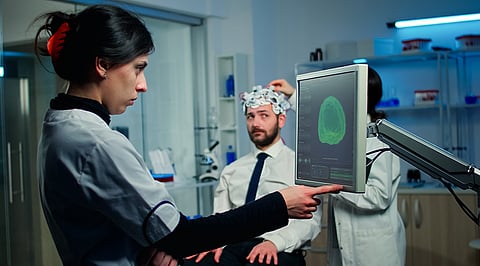

Modern software has revolutionized the delivery of healthcare services. The use of digital technologies is helping to simplify administration, improve patient care, and raise the standards of diagnosis and treatment. Software development for the healthcare industry is increasingly in demand, and the types and capabilities of medical software are truly impressive. So let's learn more about it. Today, a custom healthcare software development company shared some useful information with us.
Electronic Health Records (EHR) Software
EHRs make it easier for physicians to keep records, store patient medical information, compare diagnostic results, and track treatment dynamics.
Benefits of EHR systems include
- Improved coordination of care;
- Accuracy and speed of access to patient medical information;
- Easy tracking of clinical outcomes.
According to Lionwood, more and more advanced medical centers are implementing electronic medical records. This includes not only large surgical centers, but also primary care physicians, therapists and dentists.
Practice Management Software
Practice management programs are a godsend for physicians of all specialties! After all, they help:
- Manage the practice;
- Schedule patient visits and appointments
- Work with feedback and reviews;
-manage patient records more efficiently.
Most of this software integrates easily with electronic health record systems, ensuring seamless data exchange and improving overall practice operations.
Telehealth Software
The possibility of remote consultation is provided by telemedicine software. Patients from different parts of the world can virtually use medical services — consult with specialists of various profiles, receive medical advice and be referred to various clinical trials.
Remote medical services became especially popular with the COVID-19 epidemic, when clinic visits were somewhat difficult. Telemedicine software improves patient convenience, reduces healthcare costs, and expands access to healthcare services, especially in underserved or rural areas.
Medical Imaging Software
This includes a vast array of programs that physicians use to capture, store, process, and analyze medical images: X-rays, MRIs, and CT scans.
These programs allow medical professionals to visualize internal structures, diagnose disease, and accurately plan treatment.
Clinical Decision Support Systems (CDSS)
Analyzing medical data and making evidence-based recommendations. Such software rigorously analyzes patient data, medical literature, and best practices to provide diagnostic suggestions, treatment recommendations, and warnings about potential risks.
CDSS systems improve clinical reasoning, reduce medical errors, and promote adherence to clinical guidelines. At the same time, the quality of diagnosis and treatment is improved.
Join our WhatsApp Channel to get the latest news, exclusives and videos on WhatsApp
_____________
Disclaimer: Analytics Insight does not provide financial advice or guidance on cryptocurrencies and stocks. Also note that the cryptocurrencies mentioned/listed on the website could potentially be risky, i.e. designed to induce you to invest financial resources that may be lost forever and not be recoverable once investments are made. This article is provided for informational purposes and does not constitute investment advice. You are responsible for conducting your own research (DYOR) before making any investments. Read more about the financial risks involved here.
